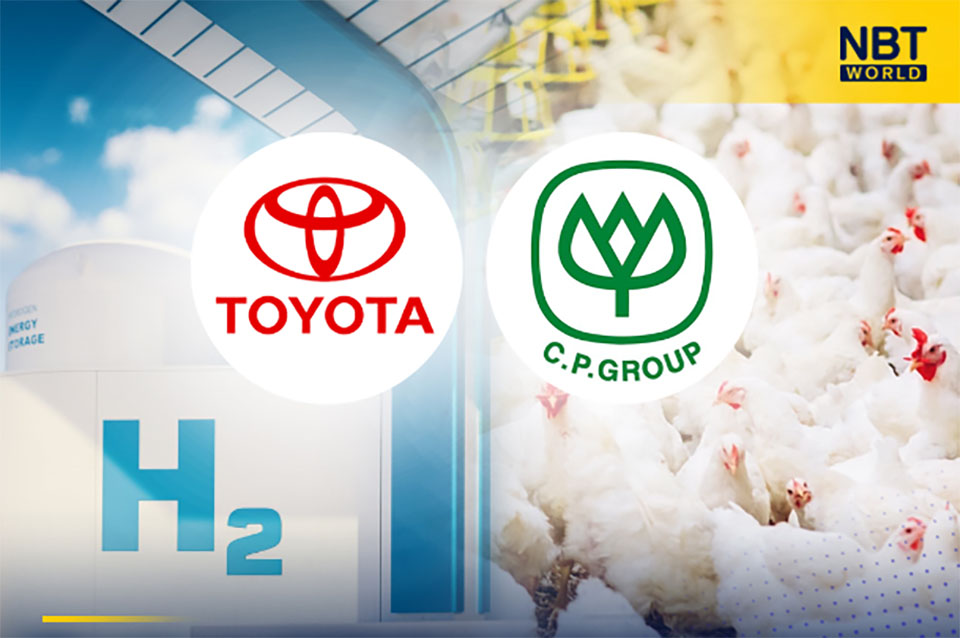
Toyota Motor announced on Monday (26 June) that it will begin producing hydrogen in Thailand starting November of this year using biogas.
The move marks a step forward in the automaker’s project with local conglomerate Charoen Pokphand Group (CP Group) to utilize hydrogen as part of efforts to decarbonize the kingdom’s transport sector.
Toyota said it will install equipment that produces hydrogen using biogas made from chicken manure at Toyota’s Asia-Pacific headquarters in Samut Prakan province, located south of Bangkok.
The manure will be provided by Thai poultry farms operated by CP Group and other parties, as well as food waste from the Toyota regional headquarters’ cafeteria.
According to the automaker, this will be the first time for Toyota or Thailand to launch a pilot project to make hydrogen using biogas.
The equipment, which will be provided by Japanese engineering company Mitsubishi Kakoki, can produce 1,000 liters of hydrogen per hour. Toyota and its trading arm, Toyota Tsusho, will develop a system to compress, store and transport the biogas and hydrogen.
The initiative is part of the automaker’s partnership with CP Group, which was launched in December 2022. The two companies agreed to look into making hydrogen from biogas and using it to fuel hydrogen-powered delivery trucks that CP intends to introduce into its fleet to help reduce carbon emissions. (NNT)






